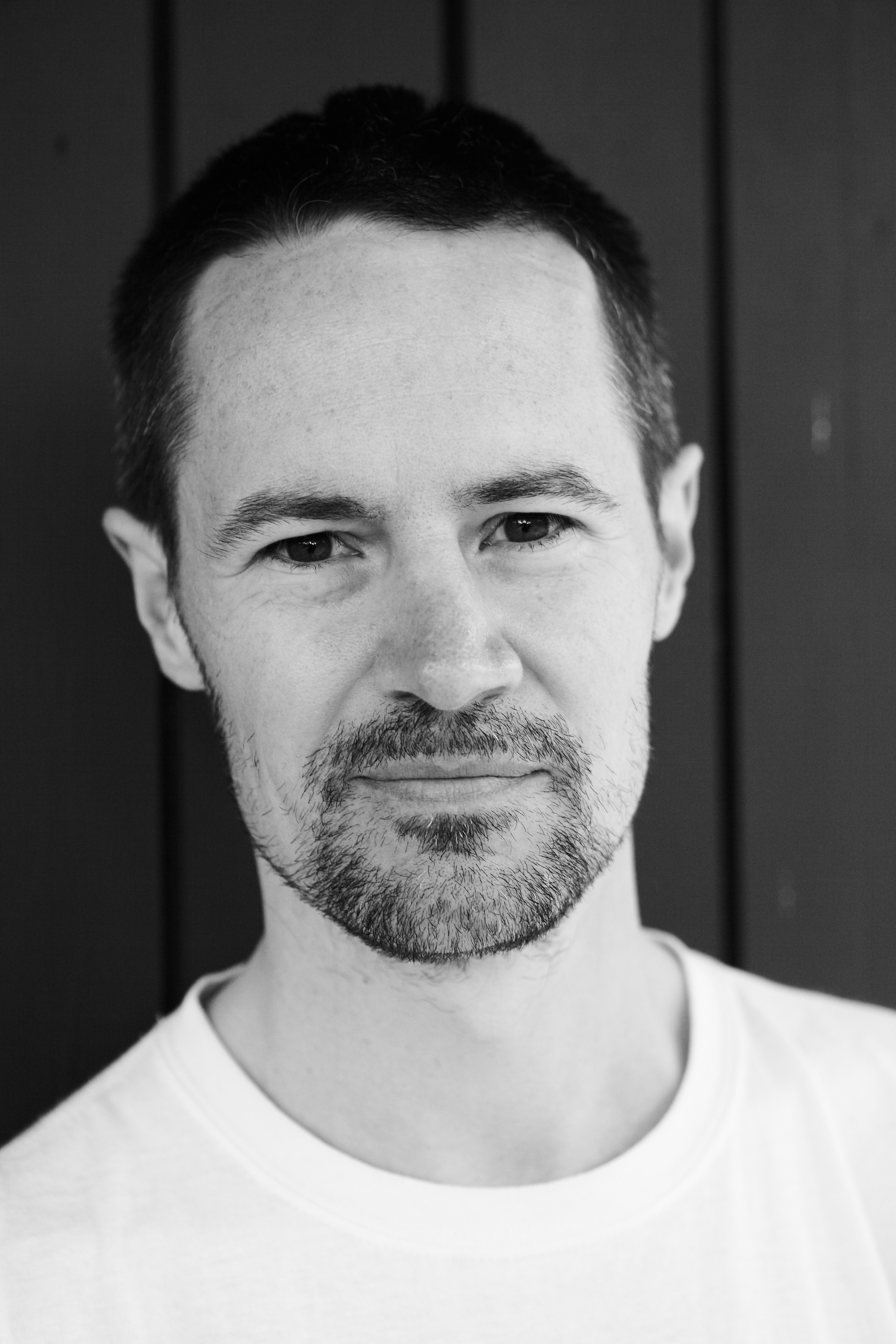
Text: Beth Mark
Photography: Sandra Freij
“I honestly feel that it’s a lack of knowledge. A lot of people still don’t know what climate change is or what’s causing it! And if you can't explain why something is happening, then you surely don't understand how you're contributing to it.”
BEN
Meet Ben
As a former teacher, in 2018, Ben founded a charity called Climate Ed - delivering climate change education to schoolchildren. The idea was born out of Bens’ love of teaching and a developing concern for our natural world, combined with a growing desire to do something about it. Whilst practising as a teacher, Ben remembers the exact moment he was first drawn to the climate crisis,
“It was August 2013 and I read a book called ‘Heat’ by George Monbiot. I remember thinking ‘WOW! Climate change is a major issue we should all be talking about and taking action over’. I then had an opportunity to take part in a ‘carbon conversation’ group run by my local transition town. It was significant to have the chance to talk about climate change - how it percolates into every single aspect of our lives in subtle ways that you don’t realise until you start talking about it.”

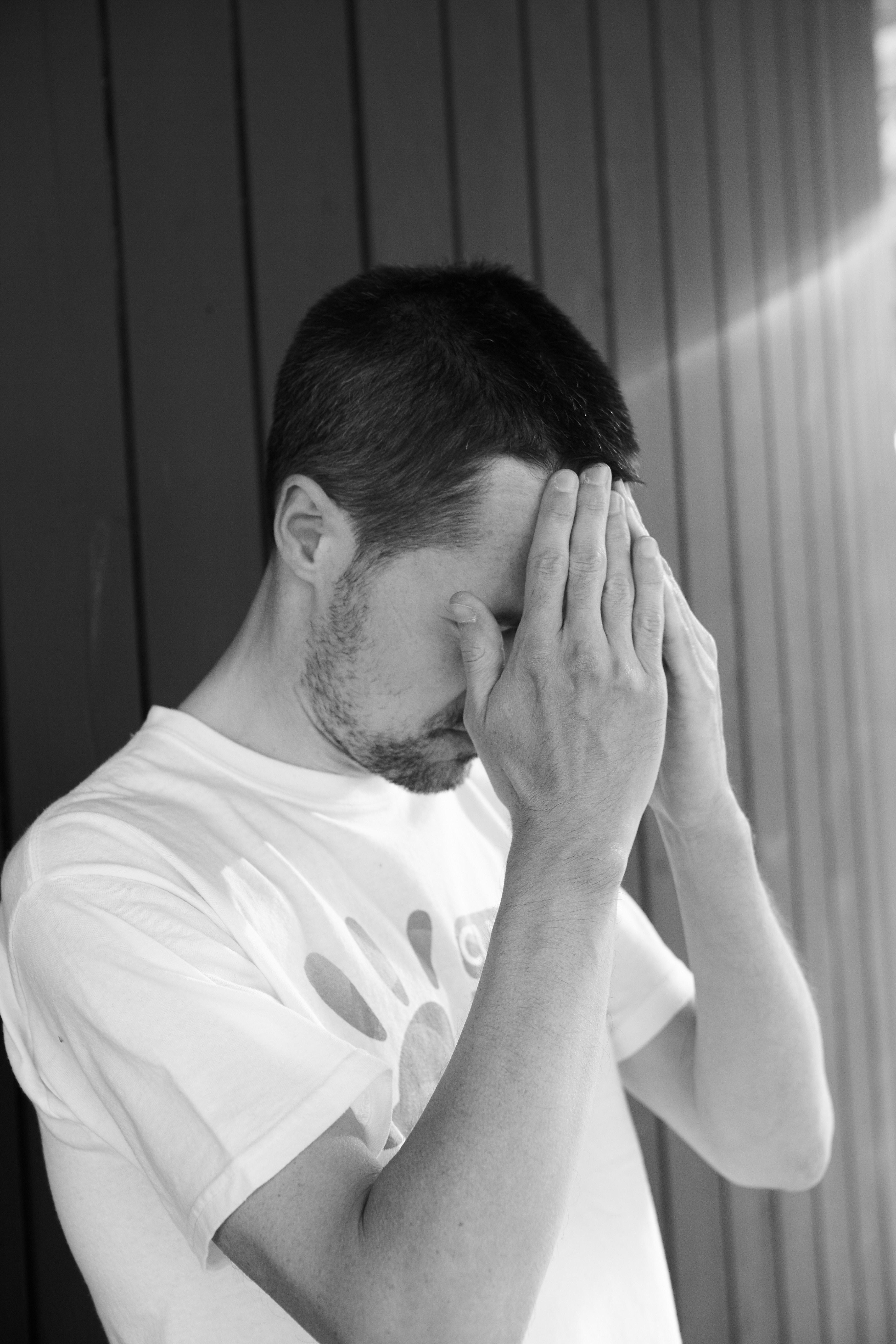
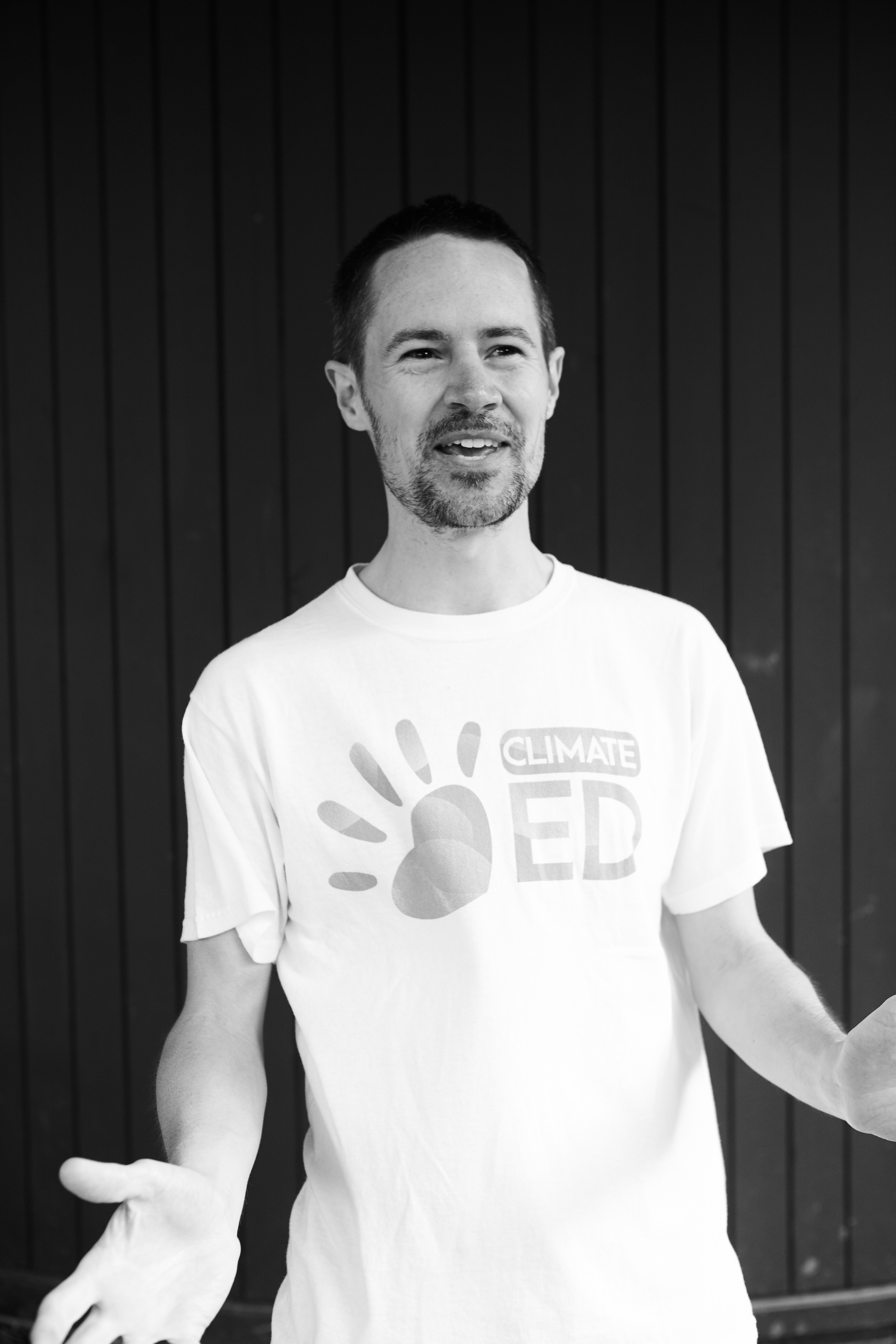
Ben loves to read reports and reviews from the growing number of climate experts, he considers himself a bit of a nerd that way, it is how he’s been able to make sense of it all.
Ben explains what he thinks is holding society back from adjusting to more sustainable, less damaging practices,
“I honestly feel that it’s a lack of knowledge. A lot of people still don’t know what climate change is or what’s causing it! And if you can't explain why something is happening, then you surely don't understand how you're contributing to it.”
Many people do struggle to find the motivation to get carried away reading the reports, so when, where and how could this necessary learning take place for people? For young people at least, one recently available option is learning about climate breakdown within their school environment. Currently based in South London, with hopes to expand, Climate Ed is working to do just this. The program starts with a school assembly and progresses on to deliver a 6-week program where they aim to educate and capture children’s energy and install fun into the process of learning. Ben explains,
“Young people are the energy that’s waiting to be harnessed to solve the climate problem. We want them to secure their knowledge of climate science and understand their role within it. We help them build a vision of the future, to develop a sense of what our future low carbon world is going look like. And we give the kids a space to amplify their voices by giving them time and resources to learn.”
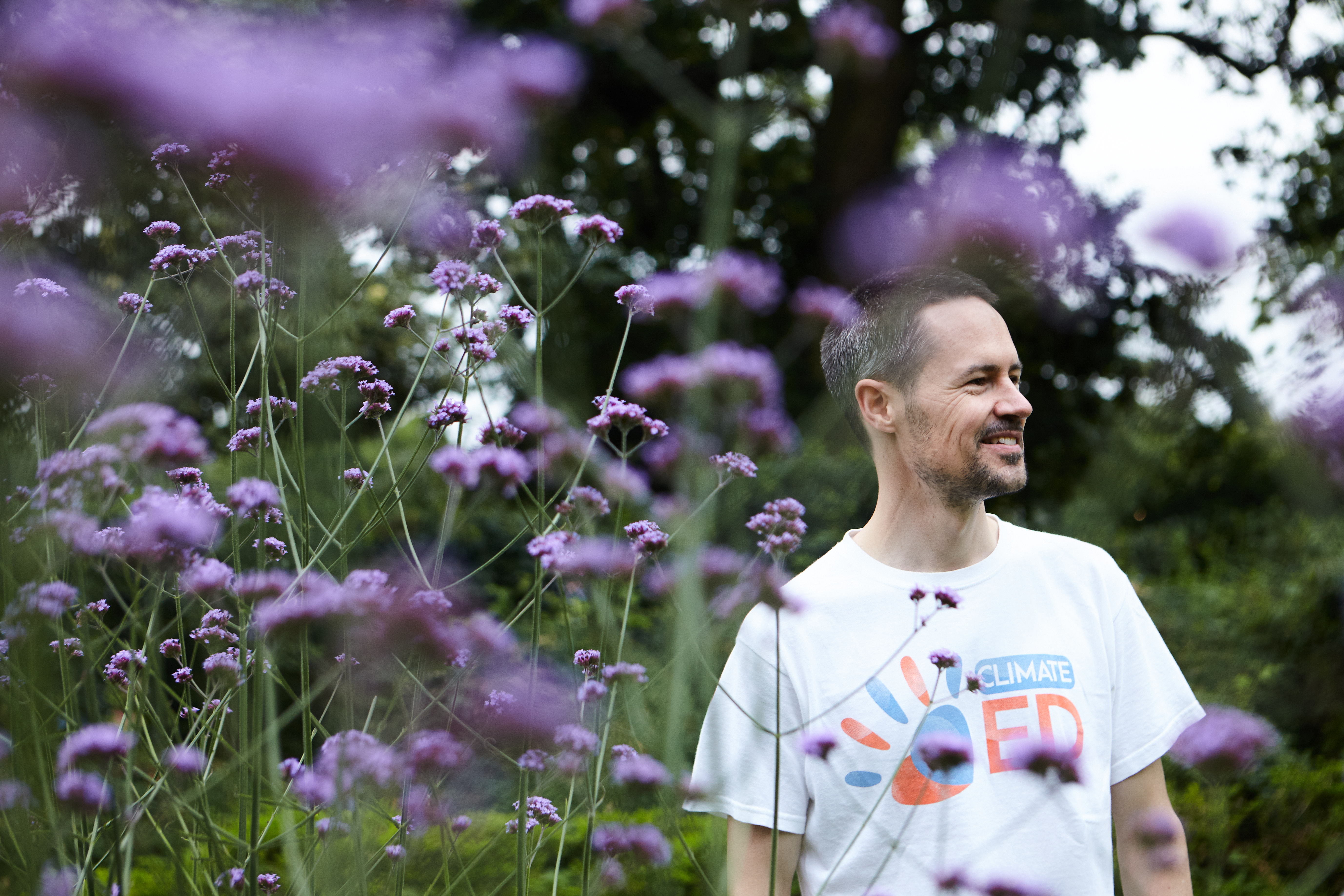
We go on to talk about his motivations for the project;
“My main motivator is the potential to have fun…people who are really engaged in climate activism love it – it involves connecting with people, and it makes you feel like you’re doing something meaningful. ‘Fun’ has to underpin everything we do because much of the movement relies on volunteers. When you’re asking for people’s time, without making it fun, not enough people will get involved otherwise. Luckily there is enormous potential to make it fun.”
Ben and his team are still in the experimental phase of working out what type of learning works best to deliver this topic effectively. One of the most challenging hurdles is to consider engagement and the effect it may have on some of the young people's emotional wellbeing. So how does Ben talk to the children sensitively about climate change?
“Children thrive off of positivity. The truth and the facts about climate change are presented in a way that demonstrates that the problem can be solved. We want our students to have the chance to do something about it so they don't feel passive. To avoid putting too much of a burden on them, we look at the changes we'll all have to make to solve it - ourselves, our parents, everybody!!
Through providing them with this action element, we start to see them overcoming that initial distress.”
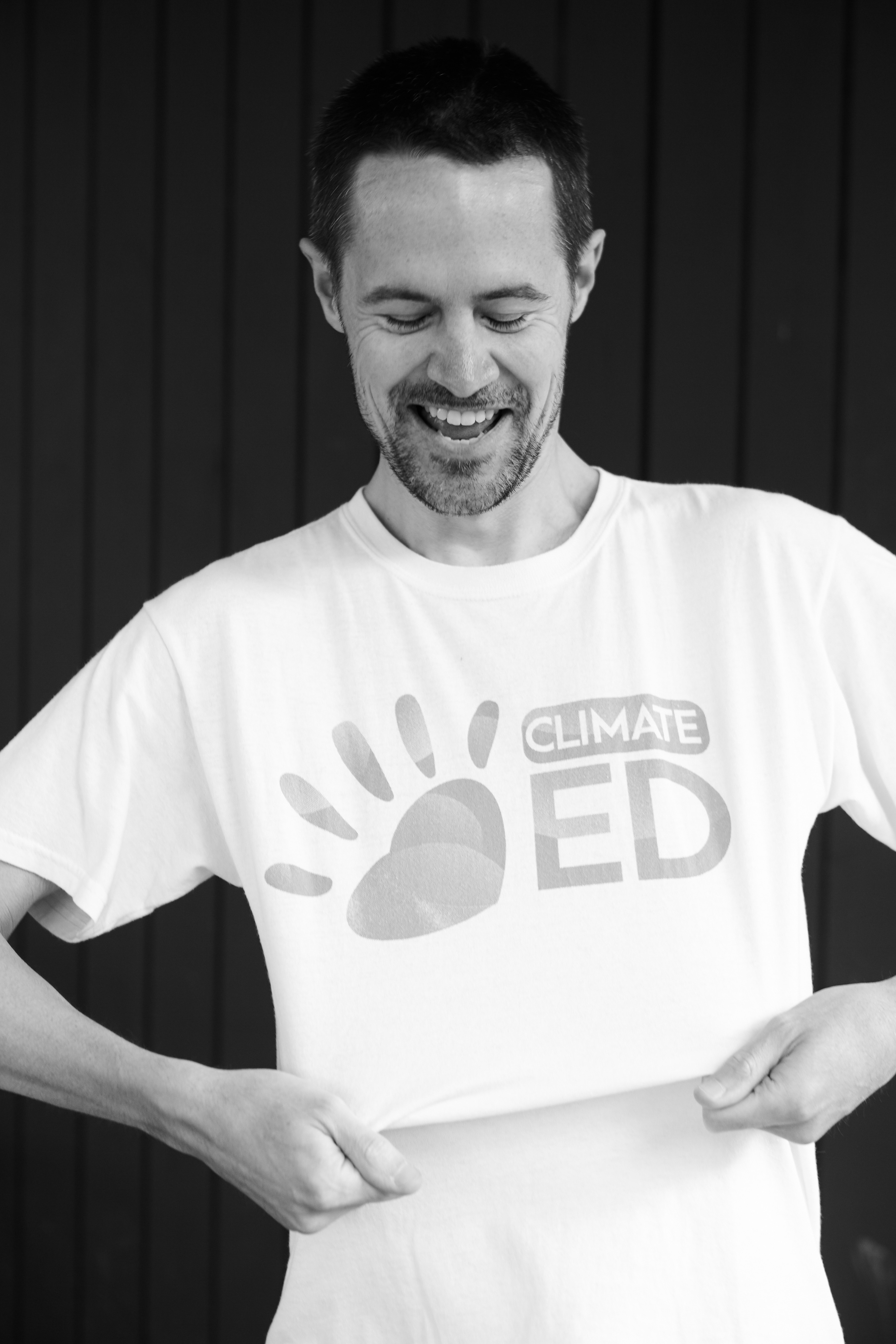
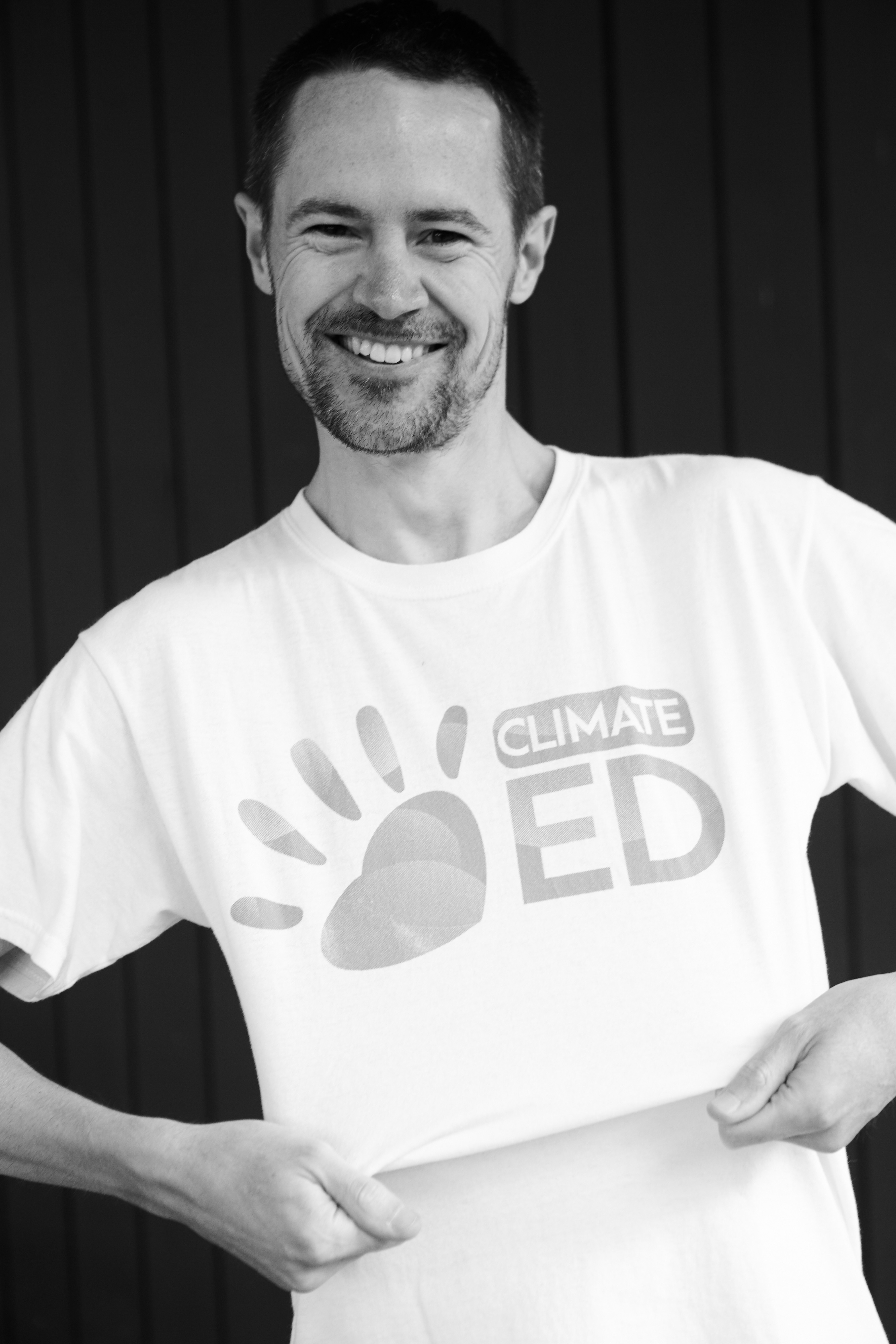
For one of the ‘action’ elements, the program provides the opportunity for students (if they wish) to hit the streets to talk to members of the public about what they’ve learnt; Ben explains the thinking behind this action,
“Kids seem to love sharing their knowledge with adults. This particular action shows just how powerful young people’s voices can be. It is surprising just how many adults don’t understand climate science properly, but are willing to listen to children – it’s less intimidating somehow and the kids love having the opportunity to influence them.”
Ben ends our discussion by summing up what his advice would be to anyone wanting to start a project around the subject of climate change,
“Number one, connect with local people. Find out what's going on locally, learn from those people and get involved with local schemes. Many initiatives are born through collaboration.
Number two would be to read a lot to become a mini expert on your subject. Number three is to utilise your existing skills. I think if you can develop some practical expertise in a particular sector, then you're in a position to do something more meaningful.
And number four is to appreciate all the simple things in life – relationships, people, trees, butterflies, all these wonderful simple things we have – they can provide a source of great happiness.”
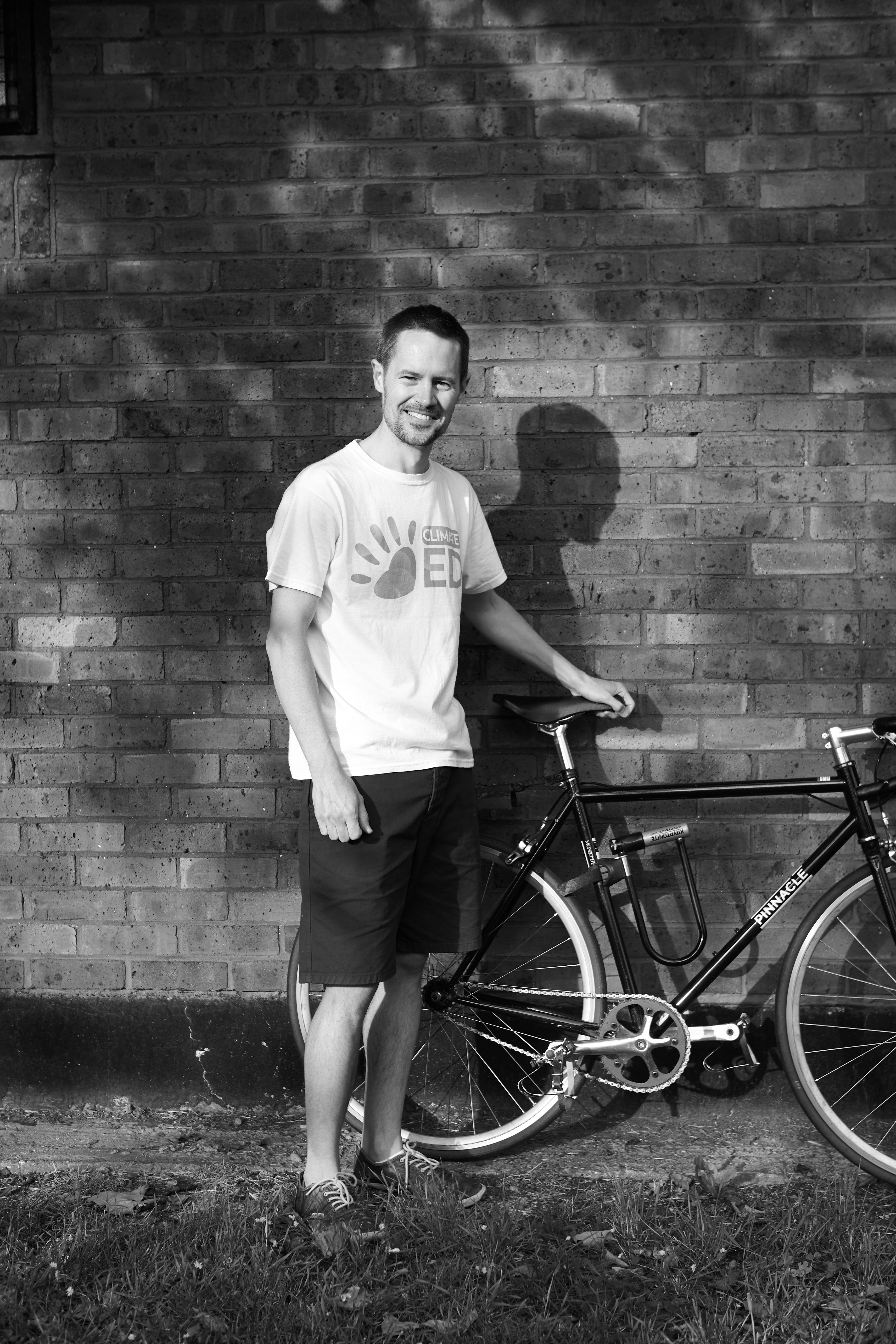
Projects like Climate Ed aim to influence a whole new generation of adults who are conscious of climate change, and Ben is now calling for Climate Ed ambassadors. He’s calling to empower adult volunteers to join his team in inspiring children to engage as they themselves develop into active citizens - providing education to educate. And in a world where learning more about the climate has the potential to make people feel anxious, I feel Ben’s approach to provide an outlet to take action is so important to help us all deal with the emotional responses we may have to climate breakdown. We need a way to turn our emotions into some sort of action - building knowledge and resilience to develop those all-important life-saving conservation behaviours.
If you are an interested parent, friend, pupil, teacher or part of a PTA, please visit https://www.climateed.net/ to volunteer or encourage your school to contact Ben and his team.
Three take home statements
︎︎︎︎︎︎︎︎︎︎︎︎︎Connect with local people.
︎︎︎︎︎︎︎︎︎︎︎︎︎ Read, read, and read. Swat up. Knowledge is power.
︎︎︎︎︎︎︎︎︎︎︎︎︎ Make it fun. You've cracked it if you find a way to make 'life changes' enjoyable.
Further reading and resources
︎︎︎︎︎︎︎︎︎︎︎︎︎Heat by George Monbiot
︎︎︎︎︎︎︎︎︎︎︎︎︎
Carbon Detox by George Marshall (a good guide to decarbonising your life)
︎︎︎︎︎︎︎︎︎︎︎︎︎ How Bad are Bananas by Mike Berners-Lee (more insights into the carbon impact of everyday things)
︎︎︎︎︎︎︎︎︎︎︎︎︎ To Sell is Human by Daniel Pink - communicating effectively with people about climate is crucial. This book shows how listening (and being an ambivert/introvert) is more effective at getting people to believe your point of view than lecturing
︎︎︎︎︎︎︎︎︎︎︎︎︎ The Honor Code: how moral revolutions occur by Kwameh Appiah - examines how great shifts in behaviour and moral outlook have occurred in history. Crucial for understanding how people's ethical view of climate change might be altered.
London 2020